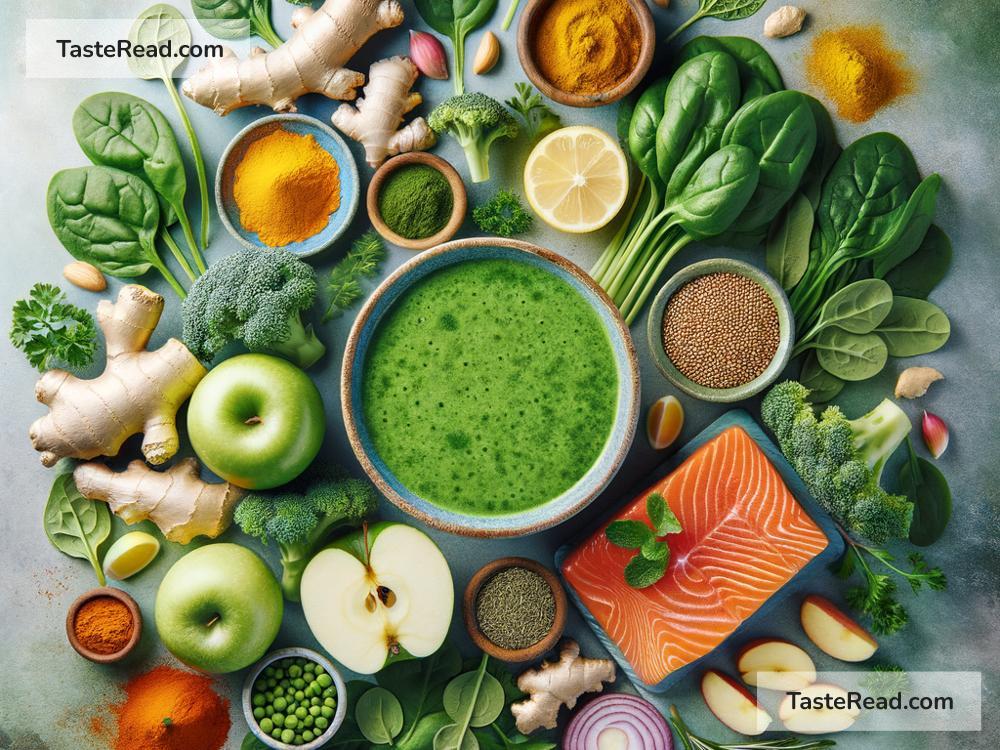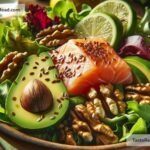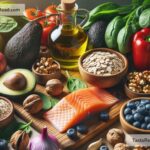Foods for Reducing Asthma Symptoms: Eat Your Way to Easier Breathing
Asthma is a condition that affects the airways, making it hard to breathe. For people with asthma, triggers like pollen, cold air, smoke, or even certain foods can make symptoms worse. While there’s no special food that can cure asthma, eating the right things may help reduce inflammation and strengthen your lungs. A balanced diet packed with vitamins, minerals, and nutrients can support your body’s immune system and improve overall health.
Here’s a list of foods that may help reduce asthma symptoms. Eating these regularly might make breathing a little easier.
1. Fatty Fish (Salmon, Mackerel, Tuna)
Fatty fish are rich in omega-3 fatty acids, which are known to fight inflammation in the body. Studies have shown that omega-3s can help reduce airway swelling, a common issue for people with asthma. These healthful fats may also improve lung function overall. If you don’t like fish, try taking a fish oil supplement, but consult your doctor first.
2. Fruits Packed with Vitamin C (Oranges, Berries, Pineapple)
Vitamin C is an important nutrient for your immune system. Fruits like oranges, strawberries, and pineapple are high in this vitamin. Vitamin C may help your lungs work better and reduce inflammation in the airways. Plus, these fruits contain antioxidants, which can protect your body from damage caused by free radicals (harmful molecules that can worsen asthma symptoms).
3. Leafy Greens (Spinach, Kale, Broccoli)
Leafy green vegetables are full of good stuff like vitamins, magnesium, and antioxidants. Magnesium is particularly important for people with asthma because it helps relax the muscles around the airways, making it easier to breathe. Broccoli is also known for its anti-inflammatory properties, which may calm irritated airways.
4. Nuts and Seeds (Almonds, Walnuts, Flaxseeds)
Nuts and seeds are great sources of vitamin E, another antioxidant that may protect your lungs. Vitamin E supports good breathing and may reduce inflammation associated with asthma. For example, flaxseeds are rich in omega-3 fatty acids that help keep the airways calm. Sprinkle them on your yogurt or salad for a crunchy, wholesome boost.
5. Apples
An apple a day may really keep the doctor away—especially for people with asthma. Apples contain natural antioxidants and flavonoids that can improve lung function and reduce the risk of asthma attacks. Plus, they’re easy to carry around as a snack when you’re on the go.
6. Ginger
Ginger is a powerful root that helps fight inflammation. Many asthma symptoms happen because of airway inflammation, and ginger may calm this down. It may also help in relaxing the muscles in your airways. Add fresh ginger to soups, teas, or stir-fries for added flavor and health benefits.
7. Bananas
Bananas are a great option for people with asthma because they are full of potassium and other nutrients that help the lungs function properly. Research suggests that bananas might reduce wheezing, especially in children.
8. Garlic and Onions
Garlic and onions are known for their anti-inflammatory properties. Eating them regularly could make your airways less swollen and help control asthma symptoms. Garlic also has compounds that improve immunity, helping your body fight off respiratory infections.
9. Turmeric
This golden spice is packed with curcumin, a strong anti-inflammatory compound. Turmeric can help reduce airway inflammation and improve overall lung health. You can add turmeric to rice, soups, or even smoothies—it’s versatile and easy to use.
10. Whole Grains (Oats, Brown Rice, Quinoa)
Whole grains are easier on your body compared to refined carbs like white bread and pasta. They help reduce inflammation, provide long-lasting energy, and contain important nutrients like selenium and magnesium. Selenium, in particular, has been linked to better lung function.
Foods to Avoid
While some foods can help reduce asthma symptoms, others may make them worse. For instance:
- Processed Foods and Fast Food: These often contain additives and preservatives that can trigger asthma symptoms.
- Dairy Products: For some people, dairy can increase mucus production, which may worsen asthma.
- Foods High in Sulfites: Sulfites are chemicals found in items like dried fruits, wine, and pickled foods, and they can trigger asthma attacks in some people.
- Allergy-Inducing Foods: Common food allergens, such as peanuts, shellfish, or eggs, can cause asthma flares in individuals sensitive to them.
It’s always a good idea to monitor how your body reacts to certain foods and avoid anything that seems to worsen your symptoms.
Additional Tips
Eating well is only one part of managing asthma. Here are some other steps to take:
- Stay hydrated. Drinking enough water keeps your airways moist and reduces irritation.
- Maintain a healthy weight. Extra weight can put pressure on your lungs, making asthma symptoms worse.
- Avoid smoking and secondhand smoke, which can trigger asthma attacks.
Before changing your diet, talk to your doctor. Every person’s asthma is different, and some foods that help one person may not be helpful—or could even make symptoms worse—for another.
Final Thoughts
While food alone can’t cure asthma, eating the right nutrients can have a big impact on your symptoms and overall quality of life. A diet rich in fruits, vegetables, healthy fats, whole grains, and anti-inflammatory spices will not only help your lungs but will also boost your overall health. So why not try adding these asthma-friendly foods to your meals and see how they help? Healthy eating could be the first step toward breathing easier and living better!


